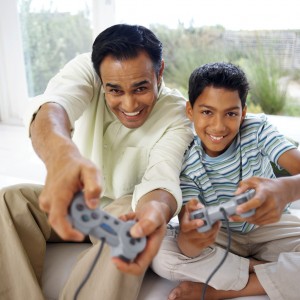 Parents are often encouraged to give their children attention, but too much of the wrong kind of attention for the wrong kind of behaviour can be bad for children.
Parents are often encouraged to give their children attention, but too much of the wrong kind of attention for the wrong kind of behaviour can be bad for children.
Point one: Children love and need attention, and for many reasons, some children need much more attention than others.
Point two: Attention tends to increase the behaviour that it follows.
Point three: If those children who are hungry for attention are not getting enough positive attention, but at the same time are getting a lot of negative attention, then they can develop a taste, or even a craving, for the negative attention.
What this means when it is all added together is that, when you give an attention-seeking child your attention for the behaviours you don’t like, even if that attention is anger, nagging, or lecturing, you are actually training them to increase the frequency and intensity of those unwanted behaviours.
If, for instance, your attention-seeking child refuses to do what s/he’s told, and you get angry in response you are giving them an enormous amount of intense focussed attention, so this is likely to encourage the defiant behaviour.
I’m not saying that the average attention-seeking child consciously enjoys angry attention. To the contrary, most children find it uncomfortable and distressing. But it’s the child’s powerful unconscious mind that is calling the shots, and enjoying the intense attention, as well as the power of having their parents respond predictably, as if on remote control.
Point 4: Parents can get in the habit of giving negative attention to their children for unwanted behaviour; that is, they can get addicted to their own angry, critical reaction.
When a parent is repeatedly frustrated by a child, it is easy to get in the habit of criticising them, not trusting them, and finding many things they do as irritating or deliberately provoking. This habit can develop in any close relationship, be it with a spouse, sibling, parent or child. But in the parent-child relationship the effect can be very destructive.
Children tend to internalise the messages and labels a parent gives them. So if they are frequently being criticised by a parent, they will eventually believe that they are the naughty, difficult person they are told they are.
So what’s the answer?
The solution is simple. To help them get over their craving for negative attention, the attention seeking child must be given copious quantities of positive attention, and simultaneously be starved of negative attention.
So, if you have a child who is frequently disobedient or angry:
- Minimise the attention you give to them for the unwanted behaviour.
- Put into place a clear strategy, such as counting followed by time out, to deal with the behaviour, and use this consistently and persistently.
- Avoid discussion or too much eye contact.
- Stay calm but strong.
- Keep mindful that your child is not consciously trying to provoke you, they are just reacting to the situation in a way that their unconscious mind [with the help of your training] has taught them to react.
- Ignore the small stuff. Only use the discipline strategy with the worst behaviours. You can work on any other annoying behaviours once they master these.
- And finally, give them plenty of positive attention for the opposite, desirable behaviours. For instance, give them plenty of praise when they obey a command, or play nicely with their sibling, or get ready for school on time. This step is crucial, especially whilst you are weaning them off their addiction to negative attention.
- As well as verbal praise and touch, you could introduce age appropriate reward systems to encourage them, such as tokens that could be spent on fun activities with you, like playing a card game, or kicking a ball.
Persistently applying these simple strategies should reduce the bad behaviour, increase the good behaviour, improve your child’s self esteem, and improve your relationship with your child.
Good luck and happy parenting.

